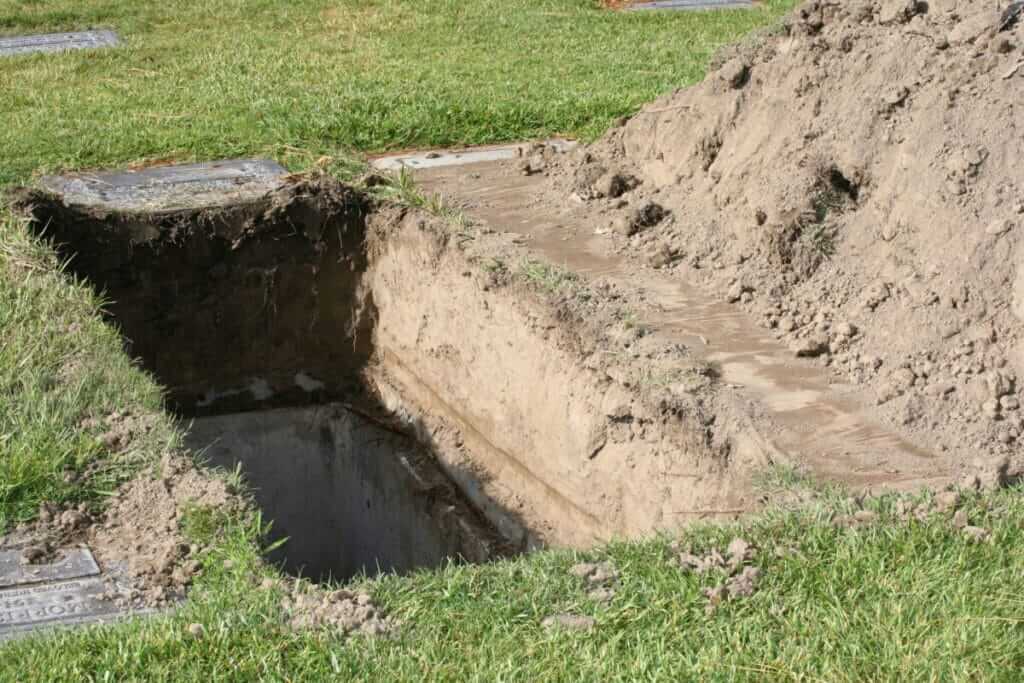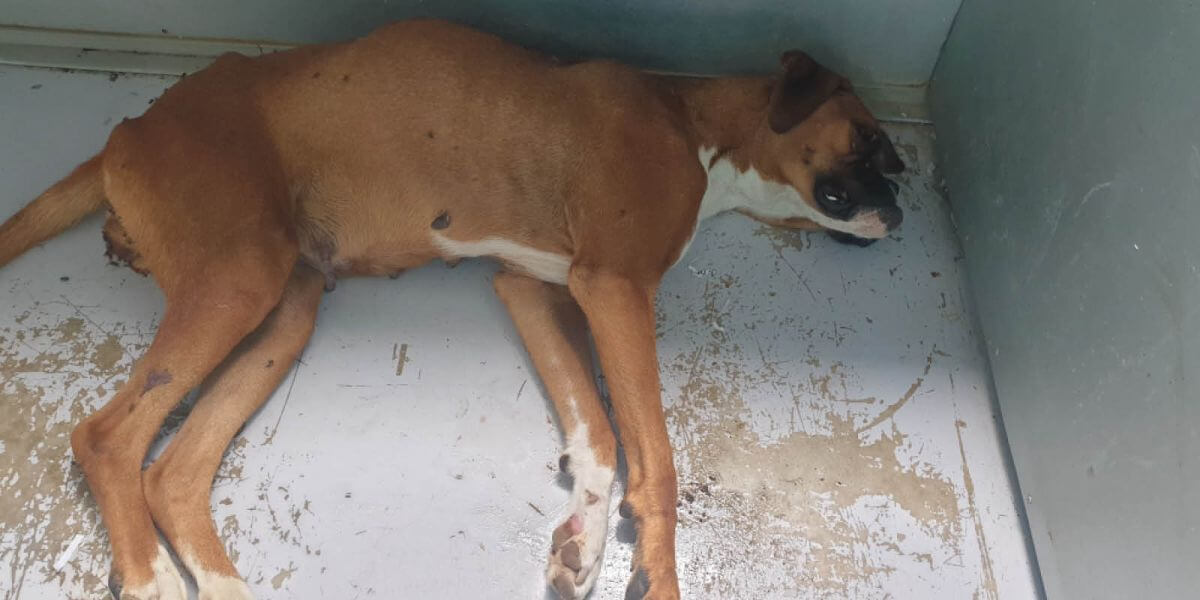You wake up one night to get a glass of water when you notice your dog lying motionless on the floor.
At first, you think he is just asleep but you can’t help but wonder why your movements didn’t startle him like usual.
So, you decide to move closer to find out if he is alright and can’t shake off the bad feeling that something is wrong.
As soon as you touch him, you realize your worst fears have just been confirmed—your furry baby is cold and lifeless.
No pet parent wants to deal with such a scenario but sadly, it is a reality that we must all face.
Your dog will eventually die and there is a good chance that it could happen at home in the dead of the night.
So what should you do in such a scenario?
Here are a couple of important things that you should do immediately:
1. Verify The Death

Before you do anything else, make sure that your dog has passed away and is not just unconscious or in a deep sleep.
Start by checking for breathing and a pulse.
This can be done by placing your hand on their chest or feeling for the heartbeat at the inner thigh.
If you can feel a slight pulse, the dog may not be dead but you may want to call the vet to in case he needs medical attention.
If there is no pulse, then the dog may have died.
You can also verify death by checking the body temperature because a dead dog’s temperature will drop lower than normal.
You may also want to check: How to Tell How Long a Dog Has Been Dead
2. Place Your Dog On A Towel
If your dog has not yet released his bowels, there is a good chance it will happen.
Releasing of bowels is a natural response after death.
To avoid mess and for easier cleanup, place your dog on a towel or old blanket that can be easily washed or disposed of.
You can leave your dog overnight before moving him to ensure all bodily functions have ceased.
If you have other family members, you may want to move the dog to a safe place where he will remain undisturbed through the night.
That’s because someone may wake up in the middle of the night and try to play or interact with the dog, not realizing he has passed away.
3. Notify Your Family

If you have other members of the family that are not yet aware of the demise of your dog, it is a good idea to notify them.
If he passed away while they were already asleep, try to let them know as soon as they wake up.
If you have a curious child who may insist on knowing where dogs go when they die, check out this post for quick tips: Where Do Dogs Go When They Die?
You may want to also explain why you have the dog placed on a towel so that they do not try to move him.
If you have other dogs, it is advisable to let them know that their friend has died.
You do this by allowing them to smell him.
Animals, especially dogs, can smell death and they need to understand and process that their companion has passed away.
They may show signs of sadness but that is a necessary part of mourning for them but they should be fine after a while.
4. Inform Your Veterinarian
If you have a regular veterinarian, it is important to inform them of the death.
Your vet may offer at-home or office euthanasia services if your dog is still in the transition phase.
They may also give recommendations on what to do with the body, such as burying it or cremating it.
If your dog passed away unexpectedly, you may want to consider getting an autopsy done.
This can help determine any underlying medical issues that may have caused the death and prevent future problems for other family pets.
Your vet can offer advice on where to have an autopsy done and the cost involved.
5. Decide On Disposal Options

Once you inform your vet, they can offer suggestions on disposal options for your dog’s body.
Some pet owners choose to bury their dog in their backyard or a pet cemetery.
Whichever option you go for, do some research on the legal framework.
For instance, if you are renting, you may need the consent of your landlord before you bury your dog in the backyard.
Also, depending on where you live, there might be local laws that either prohibit or permit it.
In addition to burying your dog, you could also think of preserving his remains e.g. by cremation, taxidermy, or freeze drying.
Your vet may have recommendations on where to go for these services.
It is important to consider the cost involved as well as your own emotional readiness for these options.
Related:
Is It Weird To Taxidermy Your Pet?
6. Ask For Help
Dealing with the death of a beloved pet can be extremely difficult and overwhelming.
It is important to ask for help from friends, family, or even a therapist if necessary.
Don’t be afraid to lean on your support system during this time and take care of yourself as you grieve for your dog.
You may get hit really hard by the death of your dog that you remain confused about what you should do next.
In such a scenario, it might help to have a friend or family member who can help you keep a level head and make the hard decisions that must be made.
If you are living alone, reach out to a friend that leaves nearby and ask them to come over or at least take you through what you need to do over the phone.
7. Take Care Of Other Pets
Remember to also take care of any other pets in the household.
They may be feeling the loss as well and need extra love and attention during this time.
After they have realized that the dog has died, they might get depressed and will also need lots of love and care.
So, while it is okay to wallow in pain, try to be there for the other pets and members of the family as well.
In fact, it may be therapeutic for you to take care of others during a difficult time like this and that might just be what you need to get over the loss of your furry baby.
8. Take Care Of Yourself

Once you verify that your dog has died, you will most likely feel overwhelmed with emotion.
It is important to take care of yourself and your mental well-being during this difficult time.
After you have done what you can, take some time to care of yourself.
As hard as it might be, try to get a good night’s sleep and remember to eat and drink.
Remember, tomorrow will probably be a long day so you will want to be physically and mentally prepared.
However, it is okay to cry, remember the good times, and take some time to grieve.
But whatever you do, remember to take care of yourself from the very onset.
These posts may give you some insights on how to deal with the loss. Feel free to check them out:
Does My Dead Dog Know I Miss Him?
Do Our Pets Miss Us When They Die?
I Want To See My Dead Dog Again: What Can I Do?
Parting Thoughts
The death of a pet can be extremely heartbreaking and difficult to deal with, especially if you lose him at home during the night.
Even the most emotionally intelligent person will most likely freeze and not know what to do next.
It’s ok to take a couple of minutes and process what has just happened but then you will need to think on your toes and start making the difficult decisions like informing friends and family, deciding on disposal options, etc.
Whatever you do, don’t be afraid to be vulnerable, and be sure to ask for help from a friend.
And the steps we have shared above can also be a good checklist to use.
In the end, it is important to remember that losing a pet is never easy and it is okay to grieve as much as you need but if you have a good support system, you should be fine.
Here are more posts that you may find useful during this tempting period:
My Dog Died—What Should I Do With the Body?
Keeping Pet Fur after Death: Everything You Need To Know
12 Tips for Stuffing Dogs after Death
As an Amazon Associate, we may receive a small commission from qualifying purchases but at no extra cost to you. Learn more. Amazon and the Amazon logo are trademarks of Amazon.com, Inc, or its affiliates.

